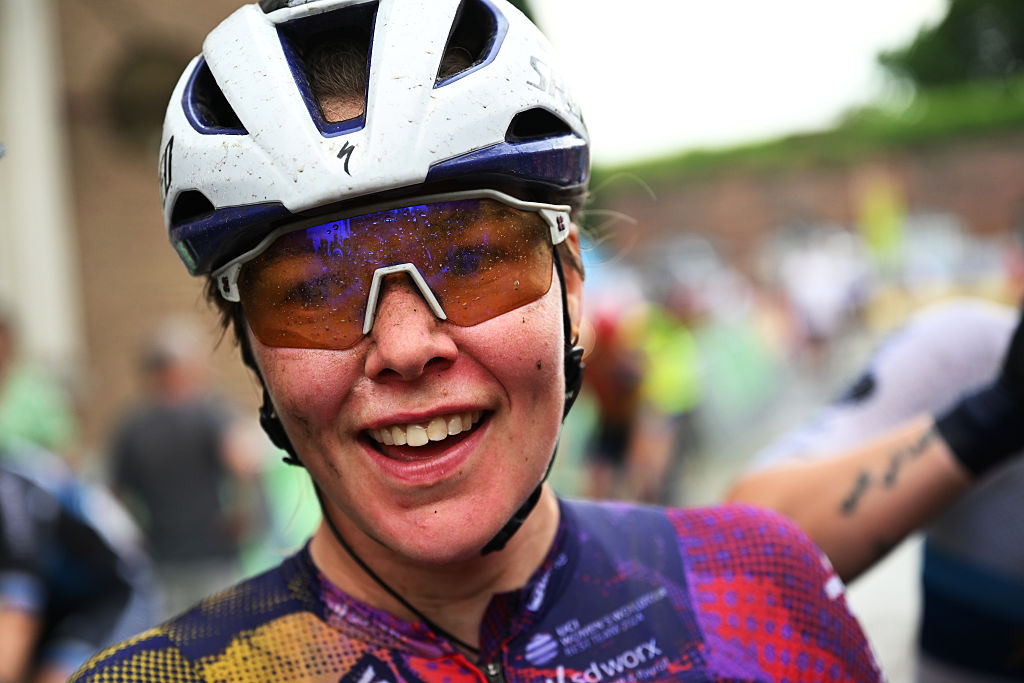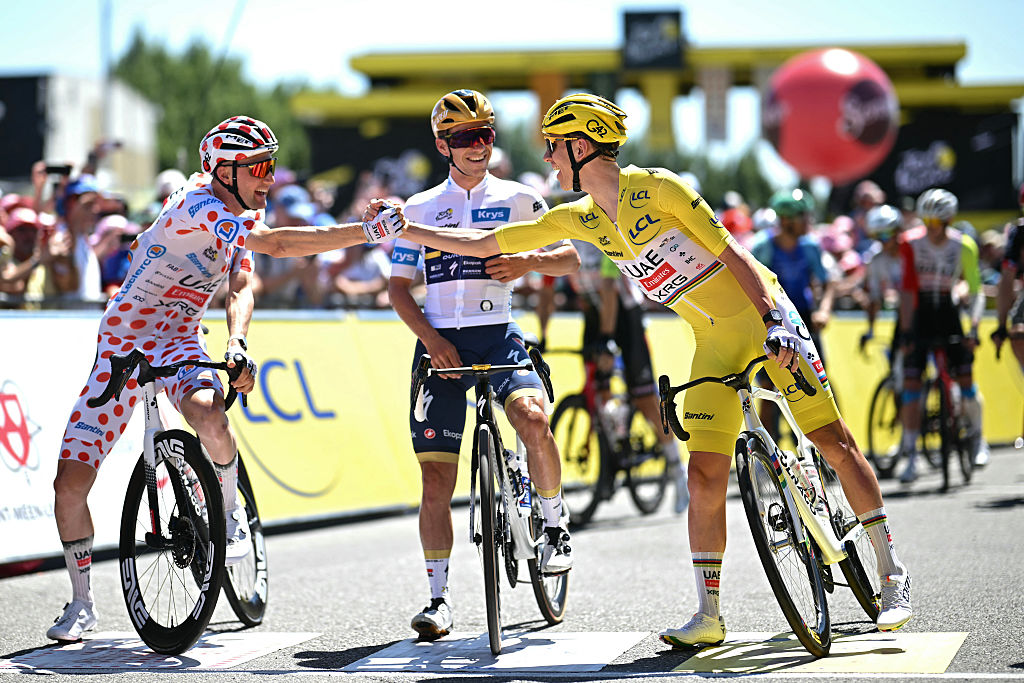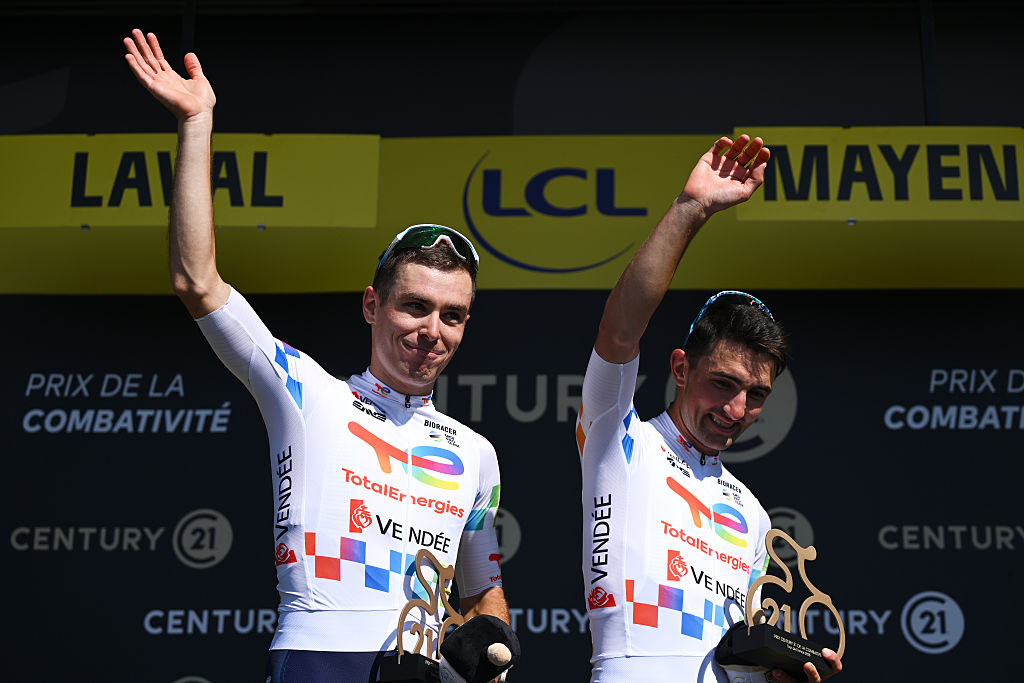Tour of California 2019 – Preview
Year 14 for US WorldTour race offers the toughest test to date
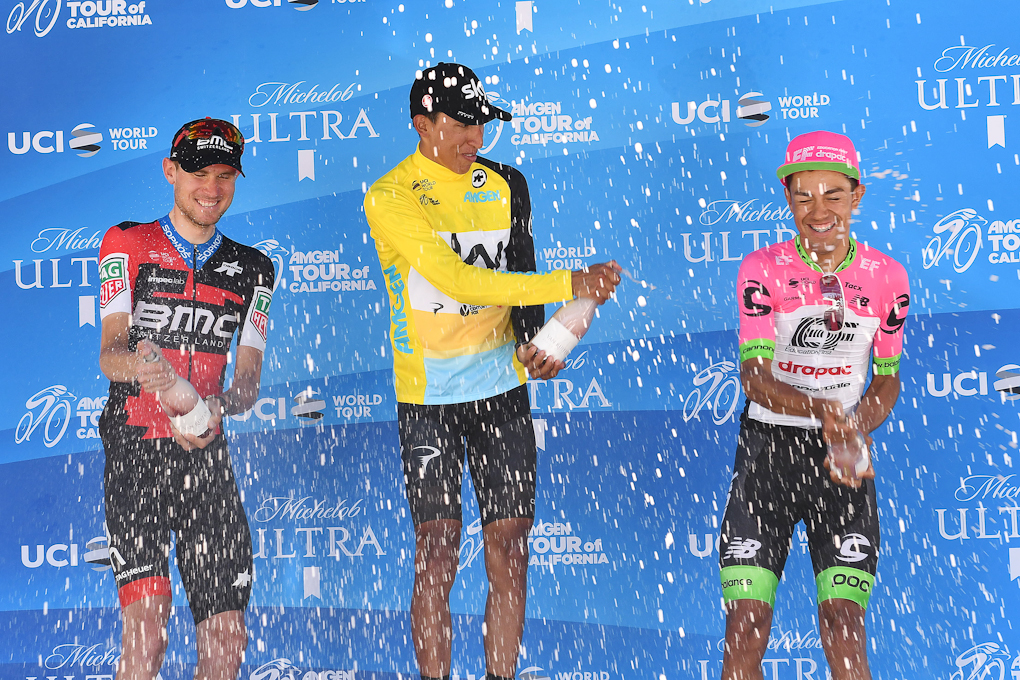
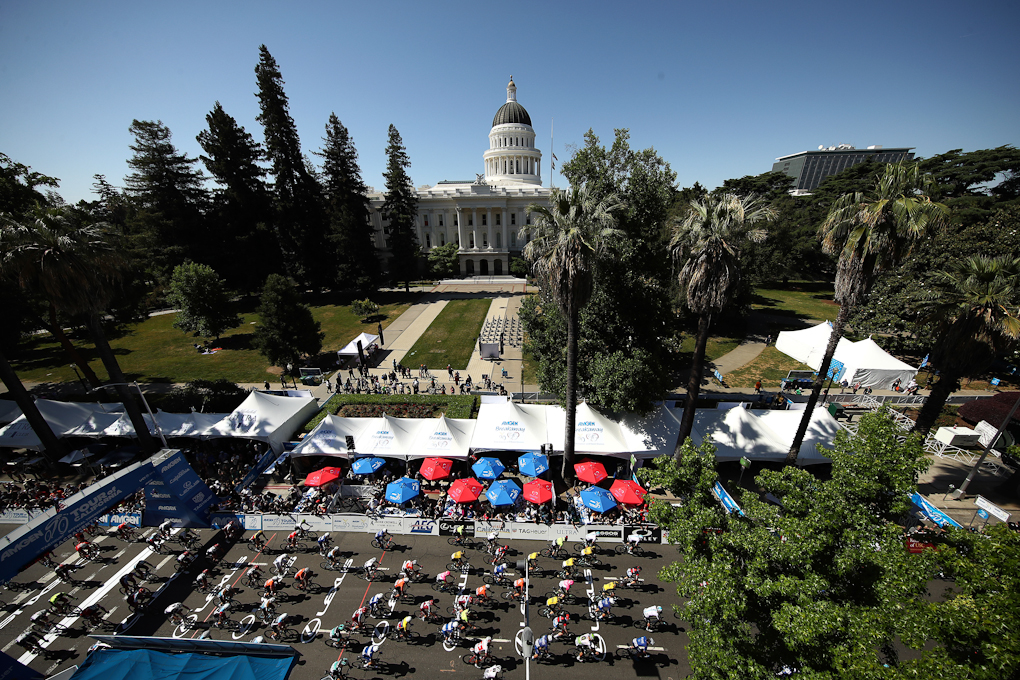
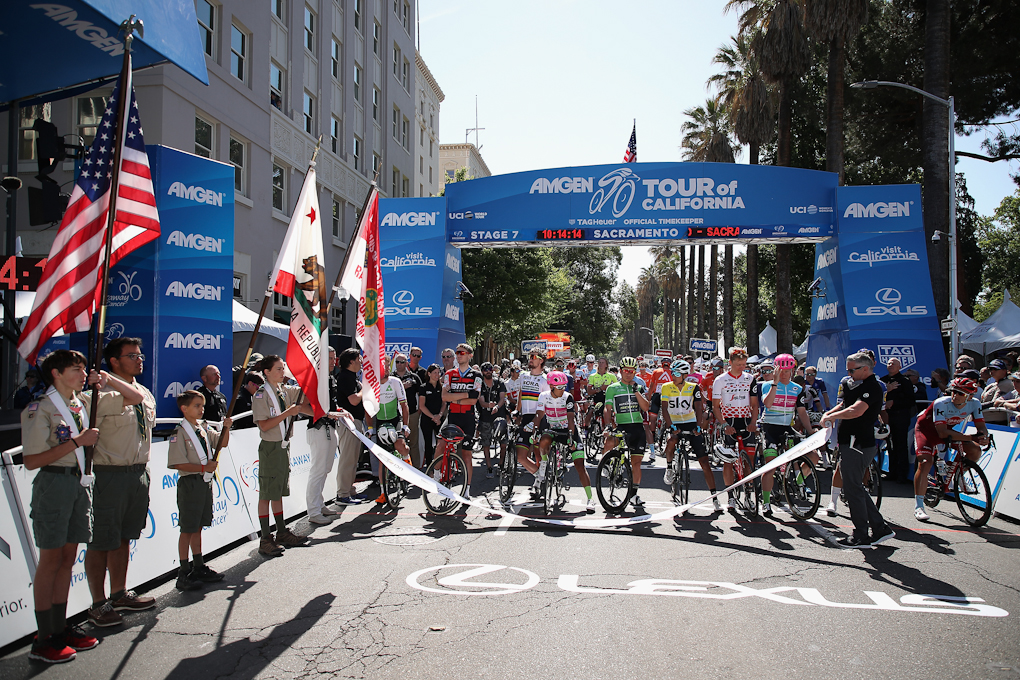
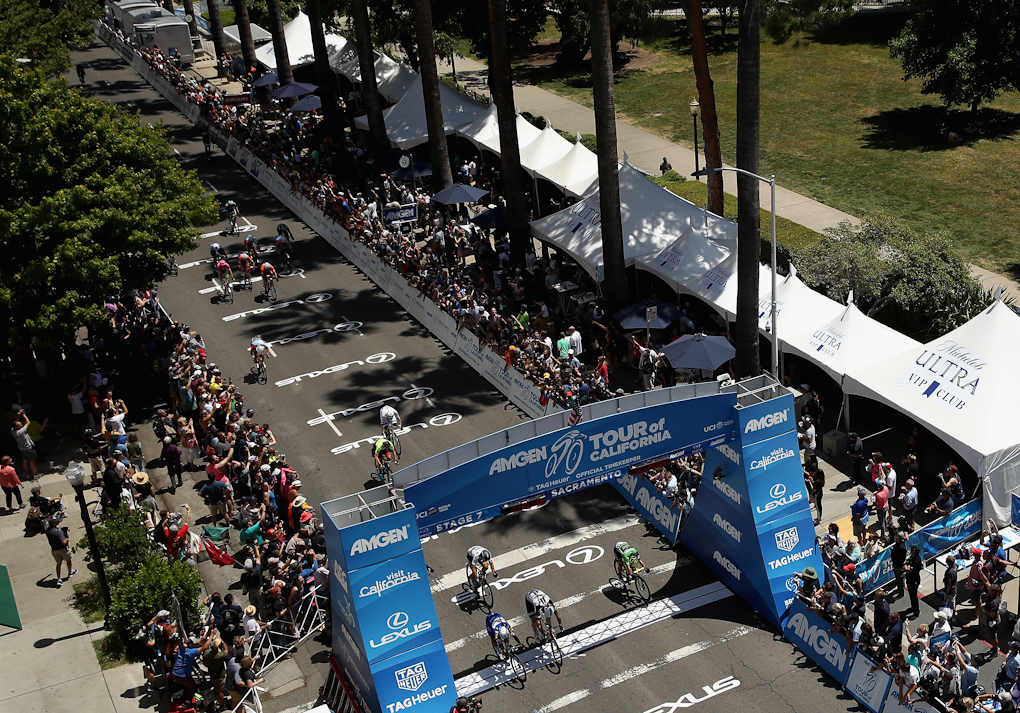
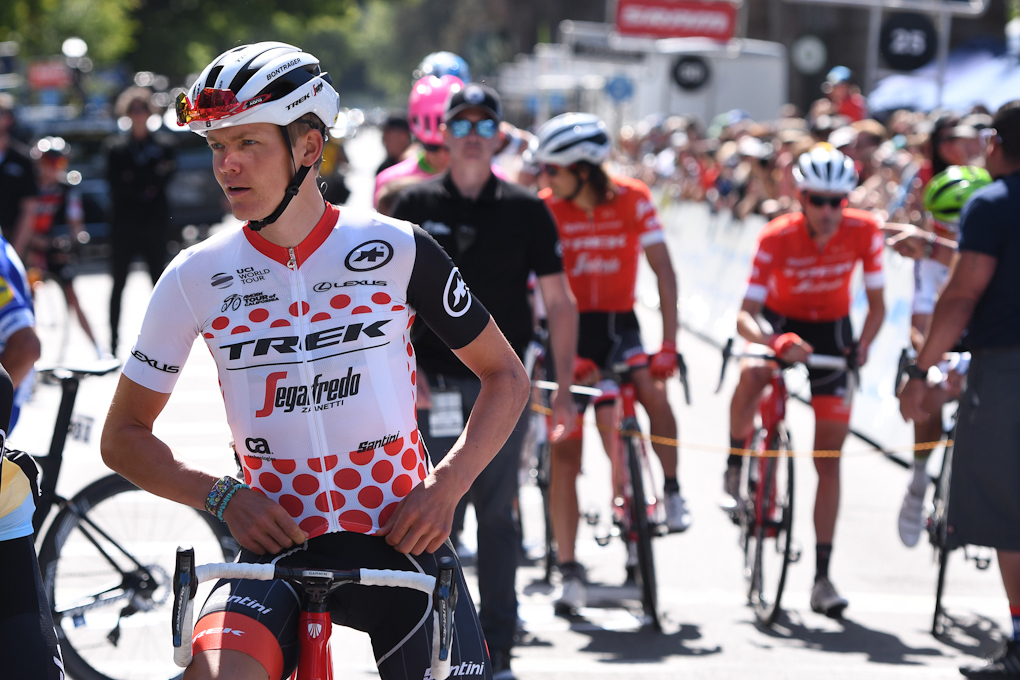
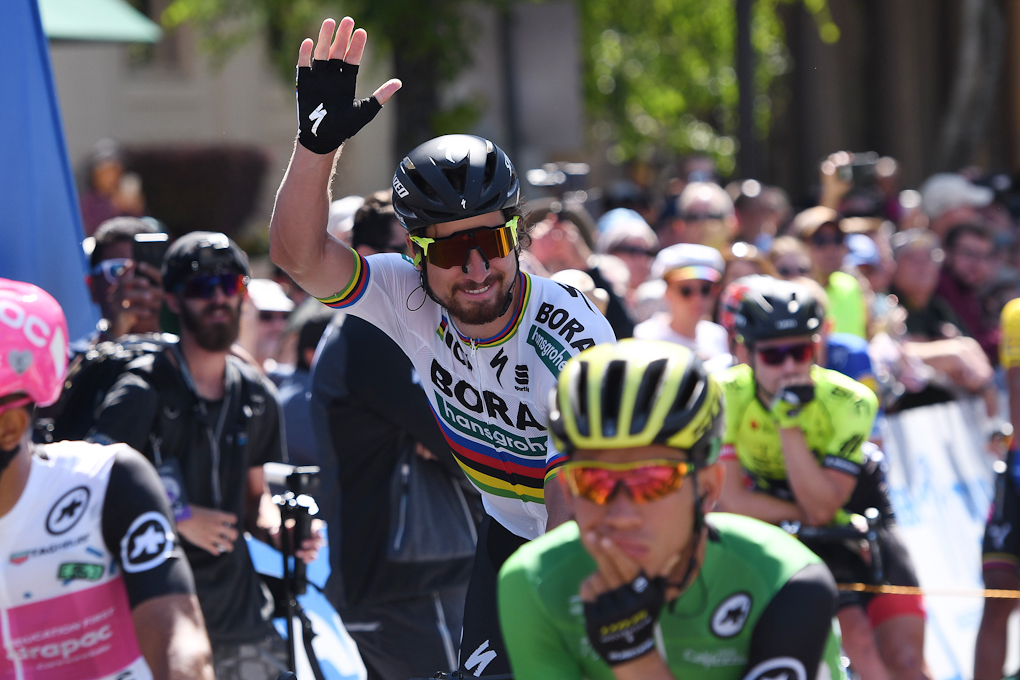
In its first 13 years on the UCI calendar, the Amgen Tour of California has grown from a small February race to its current May slot in the WorldTour, cycling's top level. In year 14, the race organisers have put together what looks to be the most difficult route to date as the race continues to mature and grow.
Deceuninck-QuickStep looking to sprints, breakaways at Tour of California
Oss, Schachmann to back Sagan at Tour of California
Israel Cycling Academy name roster for Tour of California debut
Uran to return to racing at Tour of California
Kittel withdraws from Tour of California
Despite conflicting with the Giro d'Italia, which continues to grow in significance, the Tour of California draws a quality field as riders focused on the Tour de France in July use the race as part of their build-up for the French Grand Tour.
This year features the first-ever USA Cycling national team, which will race alongside 13 WorldTour teams and five Pro Continental programs, offering a solid mix of established stars and up-and-coming hopefuls for the seven-day race that starts Sunday in Sacramento and concludes May 18 in Pasadena.
The Route
The 2019 Tour of California route is arguably the hardest yet, with the peloton facing 20,725 metres of climbing over seven stages and 1,251 kilometres of racing. There is no time trial in 2019, and the route offers just one straightforward sprint stage, with several others that include a healthy dose of climbing mid-stage before the sprinters get their opportunity if they make it over the climbs.
Stage 1 is a familiar route in the pancake-flat agricultural lands west of Sacramento that ends with several short circuits around the state capitol mall.
The climbing starts the next day on stage 2 when the peloton travels 194.5km from Rancho Cordova to South Lake Tahoe. Riders from the 2018 race will remember the majority of this stage, which includes six KOMs and nearly 4,500 metres of climbing. The route reaches 2,627 metres of elevation at Carson Pass, the highest point the Tour of California has ever climbed. Next up is Luther Pass and then the finish in South Lake Tahoe.
With the pretenders weeded out of the general classification battle on the way to Lake Tahoe, the sprinters will have another chance for glory during the 207km stage 3 run from Stockton to Morgan Hill, home of Specialized. Near the middle of the route, the peloton will take on two climbs with a total of 25 switchbacks and two very technical descents. The race then returns to the eastern slopes of San Jose and into the finish in Morgan Hill.
Riders will have a nice scenic trip along the Southern California coast from Laguna Seca to Morro Bay during stage 4. The 221.8km route includes more than 3,580 metres of elevation gain, however, including three KOMs and a sprint in San Simeon. After a short climb out of the start at the famous Laguna Seca racetrack, the race passes through Seaside, Monterey and Carmel on the way to Highway 1 and an expected sprint finish along Harbor Street in Morro Bay.
The 217.9km fifth stage from Pismo Beach to Ventura has five KOMs and 2,950 metres of elevation gain on the San Marcos Pass and Casitas Pass climbs. The stage includes a long descent in Santa Barbara, and the riders will contest the final sprint up a short 12 per cent climb on Fero Drive in Ventura, where the first stage of the women's race will have finished earlier in the day.
Stage 6 marks the return of Mt. Baldy, last used in the race in 2017 when Andrew Talansky won the stage. The relatively short 127km route is a familiar one for veterans of the race, as the climbing starts with the 17.6km ascent to the Village of Mt. Baldy. From there the race takes in Glendora Ridge Road and then a twisting descent down the backside of Glendora Mountain Road.
A return to Glendora Mountain Road leads to the 14km climb and the second KOM of the day, followed by 20km of a slight climb back to Mt. Baldy Village. From there, it's back onto Mt. Baldy Road for the death march to the top, which will throw 15 switchbacks and grades of 15 per cent at the riders.
The 141km final stage from Santa Clarita to Pasadena includes two final KOMS and 2,592 metres of elevation gain. The stage and overall race will close out with three laps around the Rose Bowl in Pasadena.
The contenders
In what has become a race tradition at the Tour of California as of late, the defending champion will not return to the race this year. Team Sky's Egan Bernal was set to take on the Giro d'Italia this year, but a broken collarbone has sidetracked those plans.
Instead of Bernal, the race includes three former champions in 2017 winner George Bennett (Jumbo-Visma), 2015 winner Peter Sagan (Bora-Hansgrohe) and 2013 winner Tejay van Garderen with his new team EF Education First, which will also feature Colombian Rigoberto Urán.
Richie Porte is making his Tour of California debut with Trek-Segafredo, while his former BMC teammate Rohan Dennis, who has twice been second in California, will return this year with Bahrain-Merida.
Bora-Hansgrohe is without the services of Rafal Majka, but Max Schachmann and Felix Grossshartner should be capable of picking up the team reins. UAE Team Emirates will be backing 20-year-old Volta ao Algarve winner Tadej Pogacar.
The sprint field at the Tour of California, which has generally been strong, is a bit of an 'Island of Misfit Toys' this year. Sagan, the 'King of California', has a record 16 stage wins, but the three-time world champion has only one win so far this season.
Mark Cavendish (Dimension Data) is still rebounding from illness and hasn't shown signs of the past form that made him one of the most feared sprinters in the peloton. Nacer Bouhanni (Cofidis) continues his problematic attempt to get back to the top having not won a race since a stage of last year's Vuelta a España. Marcel Kittel, the German sprinter who won a stage in California in 2017, recently withdrew from the race and terminated his contract with Katusha-Alpecin.
With many of the top sprinters a bit off this year, the door is open for surprise winners on the sprint stages. Jasper Philipsen (UAE Team Emirates) is a top candidate for a win, while Deceuninck-QuickStep will support 22-year-old Dutchman Fabio Jakobsen. The USA Cycling national team has Travis McCabe, who could surprise with a top finish, and Axeon Hagens Berman features Liège-Bastogne-Liège U23 winner Kevin Vermaerke.
John Degenkolb (Trek-Segafredo) will be looking to the sprints, as will Jumbo-Visma's Danny van Poppel.
The latest race content, interviews, features, reviews and expert buying guides, direct to your inbox!
Growing up in Missoula, Montana, Pat competed in his first bike race in 1985 at Flathead Lake. He studied English and journalism at the University of Oregon and has covered North American cycling extensively since 2009, as well as racing and teams in Europe and South America. Pat currently lives in the US outside of Portland, Oregon, with his imaginary dog Rusty.
Latest on Cyclingnews
-
UCl Gravel World Series – Femke Markus holds off Rosa Klöser to win Gravel One Fifty for elite women
Jordan Habets soloes to men's victory at home race in Netherlands -
How to watch the Tour de France 2025: TV, Streaming, official broadcasters
Where to watch the biggest race in the world this July -
Tour de France 2025: All the yellow cards, fines, and penalties
Yellow cards abound on stage 3, Evenepoel hit with fine on stage 4, Milan gets fine after win on stage 8 -
On the eighth day, the Tour de France rested - Why the peloton rode steady on the road to Laval
'It was quite an easy day, I think a lot of guys in the bunch' says Jonas Vingegaard
